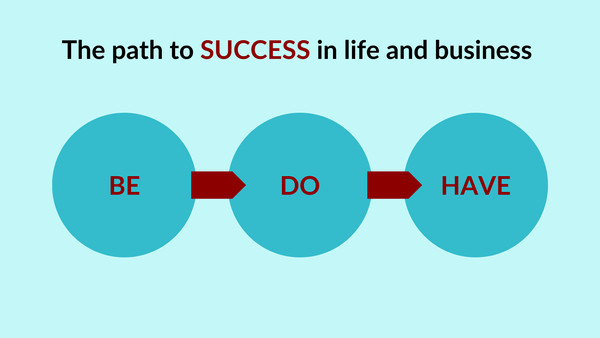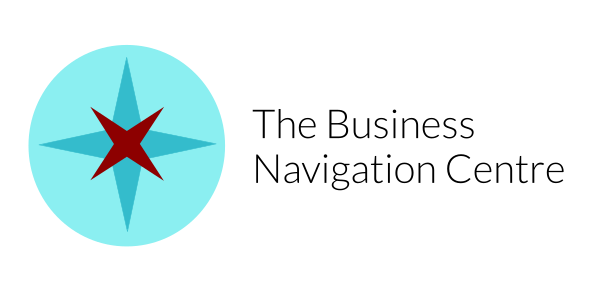
While starting a business is a very exciting journey, it can be really daunting without proper planning and consideration. In this article, I would like to share 7 points of things you should pay attention to before starting a business.
- Market Research
I imagine you already know the kind of business to venture into at this point. Carry out extensive research on the industry of your choice. Thankfully, in this day and age, it’s easy to find most information and data online. Seek to understand the trends, demand and who your competitors are. While at it, understand who is your target audience, their needs and how your business will be of help.
- Unique Value Proposition (UVP)
It’s no secret that hundreds if not thousands of people across the world are into that same business you’re trying to set up. Some have been in that same industry for years and probably very dominant. The question is, why you? Why should someone trust a new business over one that has existed? What is different? You need to respond to this question and make sure you serve it to your customers.
- Business Plan
You need to come up with a solid business plan that addresses your goals, target market, marketing strategies, operational structure and financial projections. Make sure it is as detailed as possible as it will be your guide. It is also very important when you are seeking funding.
- Legal Structure and Compliance
Understand the local business laws, licences required, permits and taxes. It is also important to determine the type of business you want to start; sole proprietorship, Limited company and partnership.
- Financial Planning
Most businesses require money to start. You need to know the initial capital needed for starting your business, if you need to buy stock, furniture or machinery, all that should be planned for before you set up the business. You should also evaluate your funding options; if you seek to start the business with personal savings, loans, investors, or grants. Plan for operational expenses and ensure financial sustainability by using a cash flow forecast.
- Skills and Resources
Evaluate whether your skills and knowledge are adequate to run the business. This will help you determine whether you need to outsource and for what. It will also inform your decision on seeking training, mentorship or additional resources. A solid network of professionals such as lawyers, accountants, business consultants is also important for every business owner.
- Marketing and Branding
You can start the most life changing business, but without proper marketing, your products and services might only remain great on paper. You need to come up with a strategy on how you will build a strong brand identity; having a business logo and establishing your online presence. You need a proper strategy on how you will attract and retain customers.
Please let me know in the comment section what other things you considered before starting your business.
What other factors did you consider before starting your business? Share your thoughts in the comments below!
If you’re exploring topics like these or facing challenges in your business, I’m here to help. As a Business Navigator Coach, I specialize in guiding entrepreneurs to find solutions. Let’s connect and work together to achieve your business goals!
Did this blog help you? If it did, please share it with your business connections.
If you have any questions contact Helene HERE
Are you tired of putting off important tasks and feeling overwhelmed by procrastination?
You're not alone!
But fear not! We have the ultimate solution for you.
Introducing "3 Easy Steps to Banish Procrastination" - a downloadable guide that will transform your productivity and help you achieve your goals faster than ever before. Say goodbye to endless frustration and hello to a focused and motivated you. Don't wait any longer, click the link below to unlock the secrets to defeating procrastination once and for all!

Anybody running a business knows it is not a walk in the park. It’s a roller coaster of highs and lows. When it’s low, which will keep you going? Understanding the difference between each one and when to apply them will help you overcome challenges and improve your relationship with your business.
Inspiration: The spark of creativity
Inspiration comes from within and is aligned with your values and aspirations. It leads to actions that have a long-term impact. It generates the highest level of energy and while happening spontaneously. Inspiration is associated with:
- Clarity of thoughts
- Innovation
- Excitement
- Unpredictability
However, by having a daily and conscious connection with their “why”, a business owner can tame inspiration and call upon it when needed the most.
Motivation: The long-term driver
Motivation arises from a connection made between an action plan and a positive outcome. It enables sustained activity with a moderate cost of energy. Motivation often arises when:
- The actions are perceived as easy, enjoyable or low-energy
- The connection with a positive outcome is obvious or instant
- Evidence of progress is experienced
- Positive feedback, external rewards, or recognition is received
Motivation is the engine for consistent behaviours that deliver results. It can be nurtured by developing a supportive environment by balancing out the energy cost of execution with the energy input from progress and positive outcomes.
Willpower: The mental strength
Willpower is a rational decision in the face of temptation or adversity. It has the highest energy costs and, as such, cannot be sustained over a long period. When over-used, it leads to poor decision-making.
Willpower is characterized by:
- Self-discipline
- Delayed gratification
- Rational response to unexpected setbacks
- Short-lived superpower
Willpower should be called upon for a sprint, not a marathon. It will get you out of trouble but cannot be relied upon as a strategy for success.
The recipe for long-term achievement is a careful mixture of all three.
- Inspiration provides the vision and innovative ideas
- Motivation is the source of sustained activity for predictable results
- Willpower is called upon when the going gets tough
To thrive, a business owner must cultivate each one by:
- Regularly reconnect with their "why" to boost inspiration
- Break large goals into milestones
- Create a supportive environment that minimizes willpower drains
- Celebrate small wins to maintain motivation
- Develop strategies to replenish each element when it’s depleted
Understanding and nurturing inspiration, motivation, and willpower can provide you with a powerful toolkit for navigating the challenges of entrepreneurship. By leveraging these distinct yet complementary forces, you'll be better equipped to turn your business vision into reality and sustain success over the long term.
Did this blog help you? If it did, please share it with your business connections.
If you have any questions contact Helene HERE
Are you tired of putting off important tasks and feeling overwhelmed by procrastination?
You're not alone!
But fear not! We have the ultimate solution for you.
Introducing "3 Easy Steps to Banish Procrastination" - a downloadable guide that will transform your productivity and help you achieve your goals faster than ever before. Say goodbye to endless frustration and hello to a focused and motivated you. Don't wait any longer, click the link below to unlock the secrets to defeating procrastination once and for all!

When it comes to pricing your services, the approach you take depends largely on the type of business you're running. Are you a solo entrepreneur running a lifestyle business? Or are you building a service business with ambitions to scale? The pricing strategies for each scenario can differ significantly. The Lifestyle Business Approach If you're a one-person operation providing services as your sole income stream, your pricing can be a fairly straightforward calculation.
Determine the annual income you want to earn, factor in the number of billable hours you plan to work, and there's your desired hourly rate. Of course, it's not quite as simple as income divided by hours. You'll need to account for non-billable time like marketing, admin, professional development, etc. And most importantly, your rate must be justifiable based on the perceived value you deliver to clients. But in essence, for a lifestyle business with no plans for rapid growth, pricing comes down to: What rate do I need to charge to earn my desired income for the hours I'm willing to work? As long as clients see the value in that rate, you're in business.
The Scale-Up Business Approach When your goal is to build a service business that can grow beyond your personal capacity, your pricing considerations are quite different. Now you have to ensure your pricing supports the financial health and growth potential of the company itself. Even before you start employing staff, the general rule of thumb is to price your services at a minimum of twice your service delivery costs (including market labour costs). So if it would cost your company £50/hour in combined expenses to deliver a particular service, you would need to charge at least £100/hour for that service.
Anything less, and you'll struggle to cover overhead and profit goals. However, smart pricing isn't about a simplistic cost-plus model. The market rate and perceived value must still be evaluated. Perhaps you can justify a £150 or £200/hour based on your expertise, client results, premium positioning and what competitors are charging. Scaling a business demands this type of value-based pricing. Furthermore, as you scale, you'll likely package services instead of sell ad-hoc hours. This provides opportunities to bundle offerings at set price points designed to boost profits. You may keep some simpler services at lower margins to attract new clients.
The underlying principle is the same: ensure you're capturing enough revenue above costs to sustain business operations, pay your team, and fund growth initiatives like marketing and new hires. At the end of the day, whether you run a lifestyle business or a growth-oriented one, the price you set for your services is a crucial factor in your success or failure. For the former, it determines your income level. For the latter, it impacts your company's profitability and ability to scale. Careful planning, market research, and a keen understanding of the value you provide are all critical to pricing your services properly.
Did this blog help you? If it did, please share it with your business connections.
If you have any questions contact Helene HERE
Are you tired of putting off important tasks and feeling overwhelmed by procrastination?
You're not alone!
But fear not! We have the ultimate solution for you.
Introducing "3 Easy Steps to Banish Procrastination" - a downloadable guide that will transform your productivity and help you achieve your goals faster than ever before. Say goodbye to endless frustration and hello to a focused and motivated you. Don't wait any longer, click the link below to unlock the secrets to defeating procrastination once and for all!
Considering the statistics that suggest businesses are 88% more productive with the support of a mentor, it begs the question why not every business works with one.
The psychology around hiring a mentor is complex.
Common characteristics amongst entrepreneurs are, independence, single mindedness, problem solvers and self belief. All of which go against the willingness to ask for help.
But then 50% of businesses fail in the first 5 years and only 40% of business put up for sell, will find a buyer, the rest are dissolved. This seems such a waste of time, creativity and money.
So when should an entrepreneur hire a mentor?
The decision process on whether/when to get help consists of answering 2 simple questions.
How successful do you want to be?
What are the consequences if you fail?
Let's take some examples.
Would you hire someone to show you how to dance?
Assuming the occasion is your wedding day, here are likely answers to each question:
Q1 Answer: I don’t really care how well I dance
Q2 Answer: If I fail, it could make for a funny wedding video.
So the answer is no.
Now different assumption: you want to impress someone you are attracted to.
Q1: Yes it would be good but I could impress that person other ways
Q2: Failing is not really a big deal, if the person has a sense of humor
One last assumption
Now let's say you want to go skydiving
Q1: it's just for fun , you are not planning to be a professional.
Q2: if you get it wrong, it is fairly fatal….
Not
So ask yourself the 2 questions and make the right decision for yourself.
Did this blog help you? If it did, please share it with your business connections.
If you have any questions contact Helene HERE
Are you tired of putting off important tasks and feeling overwhelmed by procrastination?
You're not alone!
But fear not! We have the ultimate solution for you.
Introducing "3 Easy Steps to Banish Procrastination" - a downloadable guide that will transform your productivity and help you achieve your goals faster than ever before. Say goodbye to endless frustration and hello to a focused and motivated you. Don't wait any longer, click the link below to unlock the secrets to defeating procrastination once and for all!

Let's be real - having ADHD while running a business is like riding a rollercoaster blindfolded. The ups, the downs, the sudden twists...it's one wild ride. As mentor and business coach for neurodivergent entrepreneurs, I've got a front-row seat to the challenges and perks.
Let's start by acknowledging three major drawback of the ADHD brain:
- Time Blindness when the concept of time is more abstract art than physics. Does it exist? How does it work? What even is a second? For ADHDers, schedules and deadlines are lowercase suggestions rather than rules set in stone. This makes sticking to routines, meeting time-sensitive goals, and hitting investor deadlines...um, let's just say "difficult."
- Shiny Object Syndrome. They are the easily distracted mavens of -- oh look, a squirrel! Between impulse decisions, newfound obsessions, and constant boredom, shiny object syndrome is real. It's hard to sustain focus on one big goal when every passing intrigue pulls their attention like oooh, let's disrupt the frisbee industry or import rubber duck moustaches from Finland! But fear not, I'm focused again no-- wait, one sec...
- Financial Forgetfulness Those with ADHD have a propensity for constantly losing things like keys, willpower, and their trail of thought, making keeping finances and operations organized an uphill battle. Important invoices get missed and parking tickets accrue at an alarming rate because their filing "system" is really just a blackhole. If you loan someone with ADHD $20, you might just want to get it in writing. Or be prepared to renounce all belongings to the ADHD Tax.
But lest you think it's all chaos and downsidess, check out three awesome superpowers ADHD entrepreneurs bring to the table:
- Perpetual Idea Machine Their mind is like a volcano, constantly erupting with lava-hot ideas, unique perspectives, and random creative bursts. While most have to attend brain-boosting workshops to "think outside the box," those with ADHD just...live there. They see problems from a totally different angle, making those eureka moments practically second nature.
- Lords of Hyperfocus Mention something they're genuinely intrigued by and it's like injecting them with ultra-concentrated motivational serum. Their ability to hyperfocus on topics that captivate them isn't just a party trick - it's a legitimate superpower. They've coded for 12 hours straight, surviving only on caffeine and blind fixation, emerging with crazily innovative solutions.
- Unshakeable Courage What's riskier - investing your life savings in a revolutionary crypto startup or simply trying to withdraw cash while having ADHD? The way they see it, nothing is too scary to attempt when you've already mustered the guts to step out into the world as a distractible, impulsive adult. They don't get hung up on potential failure - they'd rather chase their craziest ambitions than be paralyzed by fear.
At the end of the day, being an entrepreneur with ADHD is a wild, chaotic, magnificent, and maddening experience. They have the ambition, grit, and creative brainwaves to take on the world...if they can only figure out where they left their strategic plan, wallet, and pants. But that's just how they roll - an unpredictable, eccentric evolution of genius and dazed looks. Controlled disaster, patent pending.
If you identify with those traits and want to leverage the superpowers while getting the drawbacks under better control, just send me a one word message HELP and I will be there to help. I won’t give up on you if you don’t.
Did this blog help you? If it did, please share it with your business connections.
If you have any questions contact Helene HERE
Are you tired of putting off important tasks and feeling overwhelmed by procrastination?
You're not alone!
But fear not! We have the ultimate solution for you.
Introducing "3 Easy Steps to Banish Procrastination" - a downloadable guide that will transform your productivity and help you achieve your goals faster than ever before. Say goodbye to endless frustration and hello to a focused and motivated you. Don't wait any longer, click the link below to unlock the secrets to defeating procrastination once and for all!











